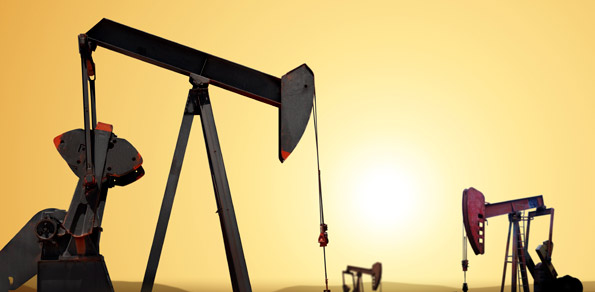Imagine the global economy as a rickety, old wooden roller coaster, its weathered tracks carrying the hopes and dreams of nations. This thrilling, yet often terrifying, ride is propelled not by a roaring engine, but by the ever-fluctuating price of oil. That black, viscous liquid that fuels our cars, warms our homes, and keeps countless industries humming, acts like a giant, unpredictable lever controlling the ups and downs of our wallets, the health of businesses, and the delicate balance of government budgets. Just like on a rollercoaster, some moments on this economic ride are exhilarating – a drop in oil prices leading to cheaper gas and a boost in consumer spending. But just as quickly, the ride can take a terrifying plunge when oil prices spike, sending shockwaves through every corner of the economic landscape.

Oil Makes Our Stuff More Expensive
For most countries, oil is like a necessary chore – gotta have it, but it can drain your wallet. When oil prices go up, the cost of everything that uses oil, like gas for your car or heating your house, goes up too. It’s like a hidden tax that eats away at your money you have left over to spend on fun stuff. This means people buy less, and businesses sell less, slowing down the whole economy.
Lower Oil Prices: A Double-Edged Sword
But wait, there’s another side! When oil prices go down, it’s like getting a bonus. Filling up your tank becomes cheaper, freeing up money to spend on movies, restaurants, or that new gadget you’ve been eyeing. This can be great for the economy as people spend more, but it’s not all sunshine and rainbows. Countries that rely on selling oil for their income, like some in the Middle East, suffer when prices drop.
Businesses Feel the Pinch Too
Oil prices are like a game of hot potato for businesses. High oil prices make everything from making a pizza to delivering a package more expensive. This can hurt companies’ profits or force them to raise prices, which can make people buy less. On the other hand, if oil prices are low, businesses might save money, but if people aren’t spending much in general, it doesn’t matter how cheap their oil is.
Oil Prices Can Make Running a Country a Headache
Oil prices can be a real headache for governments too. When prices jump, everything gets more expensive, which can make people grumpy. To cool things down, governments might raise interest rates, but that can slow down the economy. On the other hand, if oil prices are low, countries that rely on selling oil might have less money for things like schools and roads. It’s a balancing act!
Oil and the World Stage: A Dramatic Play
The price of oil isn’t just about supply and demand; it’s also a drama show on the world stage. Fights between countries that produce a lot of oil can disrupt the flow of oil, sending prices skyrocketing. Luckily, when countries work together, they can keep things stable.
The Future: Less Oil, More Sunshine
The good news is, there’s a new player on the scene: renewable energy like solar and wind power. As these become cheaper and more efficient, we’ll rely less on oil, making the whole oil price rollercoaster less scary. This means a more stable economy and less drama from countries that control the oil spigot.

The Bottom Line Oil is a big deal for our economy, but by using less oil, spreading our bets across different industries, and working together as a world, we can create a smoother economic ride for everyone. This isn’t just about saving money at the pump; it’s about building a more resilient future where our economic well-being isn’t constantly at the mercy of oil price fluctuations. By investing in renewable energy sources and promoting energy efficiency, we can create a more stable economic foundation for all. This shift towards cleaner energy will not only benefit our wallets but also our planet, reducing our reliance on fossil fuels and mitigating the effects of climate change. It’s a win-win for everyone!


